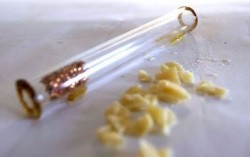Crack Addiction
Signs & Symptoms of Dependence

Crack cocaine is a highly addictive drug with severe long-term health consequences.
Conceivably, no drug takes a person down harder or faster than crack. It’s the potent, freebase form of cocaine that can be smoked to produce an intense, euphoric high that is short lived, causing overwhelming cravings for more of the drug. Users who succumb to its powerfully addictive effects risk everything they value and love as the uncontrollable use of crack takes over their lives.
Overview
No one is immune to developing an addiction to crack or to the serious dangers once exposed to its use. It is a powerful central nervous system stimulant that makes the user feel euphorically, energized and almost electrified as the stimulant works its way in the brain and by smoking the drug, this occurs rapidly.
The intense euphoria may last only a few minutes and the typical response is to take another “hit”, but, there are immense dangers in doing so. Even first time users and those in good physical health have suffered cardiac arrest as the drug constricts blood vessels while speeding up the heart rate and blood pressure to the point that the heart stops from over exertion.
As the person’s use gives way to more frequent and regular use, larger amounts of crack will be desired and needed to get high. Crack users will often “binge” on the drug until their finances or supplies run out or they become too exhausted to continue and this can last for days.
Long-term changes in brain functioning and its reward system can result in unusual and unpredictable behaviors with the abuser’s life spiraling out of control. According to the Substance Abuse and Mental Health Services Administration, “The abuser may become obsessed with the rituals of cocaine administration and may find that many common items or situations trigger cravings for the drug.” These conditioned responses help to reinforce the behaviors of use and despite losses or consequences and crack addiction will take first priority in the person’s life.
Crack Addiction Signs While Under Intoxication
Signs of crack addiction cannot always be immediately recognized unless the person is witnessed to be under intoxication. Crack addiction is a strange addiction where the user will do their best to “hide out” from others to avoid confrontations or because they often experience paranoia, anxiety, or panic over getting caught.
It’s hard to hide the intoxication effects, though, which may include:
- Enlarged Pupils
- Grinding Teeth
- Problems talking due to numbness or dryness of mouth
- Shakiness
- Hyperactivity
- Psychosis including paranoia, hallucinations, bizarre, psychotic, or schizophrenic-like and erratic behaviors
Other Recognizable Crack Addiction Signs
Physically, the crack addict may appear underweight or emaciated. They may neglect personal hygiene and self-care disregarding hunger and sleep which can further deteriorate their health. Chronic addicts tend to ignore other survival needs such as clothing, shelter, or sex.
Psychologically, the crack addict suffers chronic effects opposite of the desired initial effects. Where the effects of intoxication produce euphoria, elevated moods, energy, alertness, and sexual arousal, with chronic use, they suffer cognitive deficits, insomnia, fatigue, lack of sexual desires, and depression.
Other signs that a person may have a crack addiction include:
- Possessing paraphernalia such as multiple lighters, pipes or “stems”, wires, and “chore boy” scrubbers
- Burn signs on mouth or fingers
- Frequent disappearances from social activities
- Unusual sleep patterns such as staying up all night when getting high and excessive sleeping after a crack “binge”
- Failure to perform obligations at home, work, financially, or socially
- Excessive time spent seeking and using crack or spent with other crack users
- Excessive borrowing to support habit or having a variety of unusual excuses for being broke
- Committing illegal, immoral, or dangerous activities to be able to use crack
- Coughing or breathing difficulties which may be a result of “crack lung” which is the serious damages caused by smoking the crack and inhaling the dangerous chemicals it contains
- Cardiovascular problems, organ damage, seizures, and other physical health problems
- Overdose
Crack Addiction Symptoms
Regular use of crack changes the way a person views their life and others. The crack addict will deny that they have a problem and will continue using crack despite the negative consequences.
Crack addiction progresses through stages that go from being a casual user to abuse, and on to the full blown addiction. According to the Substance Abuse and Mental Health Services Administration, there are tremendous differences in the timetables with “some individuals reporting an ability to use for extended periods with few signs of negative consequences and others reporting a very dramatic onset of severe detrimental effects as soon as a few weeks or months after initiation of cocaine use.”
Crack addiction symptoms may include:
Early Stage
- Obsessive or addictive thoughts
- Compulsive urges or cravings to use
- Lifestyle changes
- Withdrawal from normal activities
- Subtle physical and psychological consequences such as jitters, mood swings, and irritability
Middle Stage
- Uncontrollable cravings and impulses to use
- Denial
- Increasing isolation
- Increasing physical deterioration
- Psychological consequences such anxiety, confusion, emotional instability
- Impaired performance at work or school
- Behavioral changes that may reflect a higher degree of aggression, violence, impatience, erratic mood swings, impulsiveness, frustrations, and lack of tolerance
Late Stage
- Failed efforts to quit
- Relationship problems
- Social dysfunctions
- Severe financial problems
- Plummeting self-esteem
- Severe depression
- Psychosis or increasing paranoia
- Death